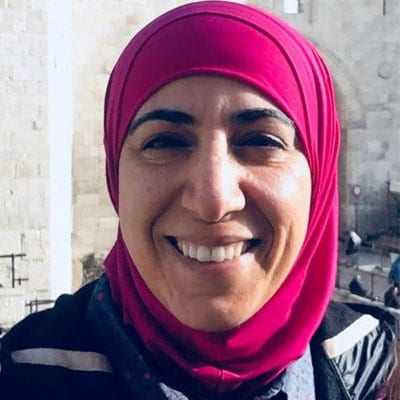Israel’s appearance before the International Court of Justice (ICJ) at the Hague is an important step on the road to justice and a necessary contribution to the healing of the historical trauma of the Palestinian people. This trauma began with the Balfour Declaration of 1917 and has continued through the Nakba of 1948, and through many subsequent wars and aggressions. The trauma is present in the genocide we are living now, which is deepening and expanding our historical wounds to a point that cannot heal without a profound intervention.
The state of Israel has always transgressed international law. The powers of Europe and the United States have colluded with it. The United Nations has failed to deter it or hold it accountable for its violations. The Palestinians have always been acutely aware of this injustice and abandonment, of betrayal after betrayal. Israel’s impunity throughout history has enforced a sense of isolation for the Palestinians and has weakened our faith in human interconnection and fairness.
South Africa’s actions at the ICJ – regardless of their results – came to correct, at least partially, that flaw in the Palestinian perspective of the world, through its solidarity, recognition and support.
The appearance of Israel at the ICJ conveys significant symbolism for our humanitarian cause. South Africa, the main engine driving the trial, is an icon of confrontation and triumph over racial and ethnic oppression. Its arguments holding Israel accountable for the charge of genocide supports the rights of Palestinians and confronts Western powers and their system of international subjugation with their complicity in an ethnic tyranny that has stained their hands with blood.
We welcome the people of Africa, the victims of past violations of human rights, in solidarity with the Palestinians — the victims of the present. This solidarity liberates us from the humiliation born from our exclusion from the conscience of the human community. It promises us that there is still goodness in the world. It gives us confidence in our shared humanity. It lights a glimmer of hope that there is fairness and justice in a world that has darkened our lives with oppression for over a century.
Most of us in Palestine believe in a heavenly court and in divine justice. All the same, we recognise that religious faith should not be an obstacle to the relentless pursuit of justice here on earth. The great importance of international trials lies in giving voice to those who have been victimised by injustice. This action repairs psychological injury and renders us effective survivors; it fortifies us in bringing those responsible for crimes to make proper reparation, so that their crimes do not pass without just condemnation. Calling those responsible to account is crucial as a deterrent for them and for all others.
This week, Egyptians took to the streets chanting, “They did it, Mandela’s grandchildren, while we are in fear, shame and humiliation.” Perhaps that was their reaction to the Israeli defence team’s claims that Egypt is responsible for closing the border to Gaza and preventing the delivery of aid. Namibia added its voice to that of South Africa, maybe in reaction to Germany, who had joined in the court process to support Israel, as if encouraging the current extermination of Palestinians could atone for the German history of exterminating the Jewish people along with many others. Namibia reminded the court of the German crimes against the people of Namibia, helping reveal the full history of the current actors at the Hague.
South Africa’s solidarity with Palestine gives us hope for the global movement resisting racial discrimination. Palestinians and their supporters must take full advantage of this historic moment. We must continue to work within a variety of frameworks and by all avenues, whether through professional organisations, trade unions, diplomatic channels, or the pressure of street demonstrations. We must affirm the rights of Palestinians, make a record of their sufferings and confront their oppressors.
READ: In siding with Zionist genocidaires, Germany ignores its own history of genocide in Namibia
This mission will require concerted efforts, steadfastness in facing our challenges and extraordinary patience. Even if the road is long, the trial at the Hague and these advocacy measures can be a catalyst for genuine peace based on justice and on re-establishing Palestine’s long-violated rights. This is an inspiring moment to activate a strong international movement which calls for the end of the historic occupation of Palestine, to set right this injustice and to highlight the untold harms Palestinians have endured for so many decades. Our duty now is to hold fast and to spare no effort- at both the popular and the political levels – to bring into being a global renewal spearheaded by the courage of this historic moment at the International Court of Justice.
The views expressed in this article belong to the author and do not necessarily reflect the editorial policy of Middle East Monitor.

![Hearing of Israel's defence at the International Court of Justice (ICJ) against South Africa’s genocide case in Gaza against Israel continues, in the Hague, Netherlands on January 12, 2024 [Dursun Aydemir/Anadolu Agency]](https://i0.wp.com/www.middleeastmonitor.com/wp-content/uploads/2024/01/AA-20240112-33420018-33420007-ISRAEL_BEGINS_PRESENTING_DEFENSE_AT_WORLD_COURT_AGAINST_GENOCIDE_CASE-scaled-e1705511222883.jpg?fit=920%2C614&ssl=1)







